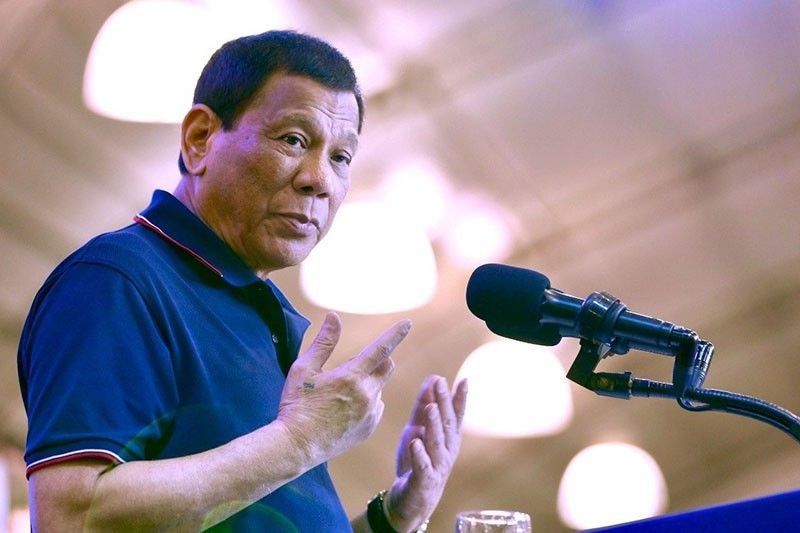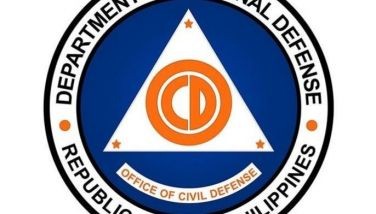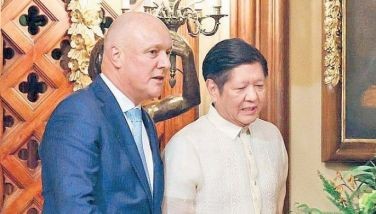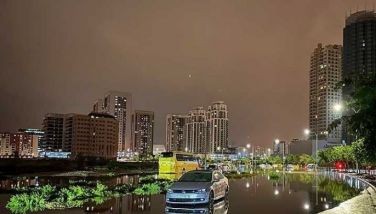Government eyes ‘rolling restart’ of economy – IATF

MANILA, Philippines — The government is looking at the possibility of a “rolling restart” and “rolling reopening” schemes for the selective and gradual lifting of the Luzon-wide enhanced community quarantine after April 30 to help jumpstart the economy while the coronavirus disease 2019 (COVID-19) pandemic is being contained, a member of the Inter-Agency Task Force (IATF) on Emerging Infectious Diseases said yesterday.
Dr. Anthony Leachon, special medical adviser to the IATF, said there could be “a rolling restarting of the economy” after the end of this month when the extended quarantine is scheduled to end, even as he stressed that the final decision would depend on certain critical metrics.
President Duterte on Monday said he was likely to lift the quarantine once the country gets a cure for COVID-19.
The IATF, according to Leachon, is currently discussing the possible courses of action to be taken after April 30, including another 15-day extension or pushing through with the lifting of the lockdown.
“The recommendation for a win-win situation – because we think the economy will not endure so much from this extension – is for a rolling or a localized opening of the economy, but based on two metrics,” Leachon told the ABS-CBN News Channel, referring to the epidemiological and healthcare capacity of the country to continue caring for the sick and contain the pandemic after April 30.
He said the decision on whether to do a gradual easing or immediate lifting of restrictions would depend on the metrics.
“You need to understand the number of cases, if there are more deaths, less recovery, doubling time is short. The other important thing is the healthcare capacity. Do you have the testing centers? Do you have the testing kits with you in that locality? Do you have the human resources with you? Do you have the funding for that? Do you have COVID hospitals ready or without COVID hospitals, do you have an isolated (area) in the hospital with the human resources to address this?” the disease prevention expert added.
If a locality does not have health and medical resources, Leachon advised that the area must be allowed a “rolling reopening.”
He noted that the areas to have such partial or gradual lifting of restrictions will be chosen based on their performance in addressing the crisis as well as their capability to sustain the campaign against the disease.
“Then you have to select the local government units based on the metrics and based on the viral spread, new cases, deaths, recoveries, the testing capacity and healthcare capacities, the human resources,” he said.
Leachon cited Valenzuela City, Pasig City and Cavite province as among the areas under quarantine that have a good chance of having some of their restrictions removed, depending on their respective circumstances.
He was also cautiously optimistic on how the country is combating COVID-19 as the number of cases seems to be plateauing, saying the quarantine has somehow been helping contain the spread and the arrival of test kits would make it easier for health authorities to fight the disease.
Selective, conditional lifting
A party-list lawmaker yesterday proposed selective and conditional lifting of the Luzon-wide enhanced community quarantine to help mitigate impact of the novel coronavirus on the economy.
AKO Bicol party-list Rep. Elizaldy Co asked the IATF to consider lifting the quarantine in select areas with practically no new COVID-19 cases.
The lawmaker specifically suggested that the quarantine be lifted in municipalities with zero new case and in island-provinces with zero or one case recorded in the last 15 days.
“The objective of quarantine lifting is to allow people, albeit in limited numbers and in select localities, to return to their jobs. We’re fighting a protracted war and until no vaccine is invented, the government’s limited resources can’t support and feed all those who (have been) displaced. We need to save government funds for the longer battle,” Co stressed.
World Health Organization estimates indicate it would take at least two years before an effective vaccine against COVID-19 will have been discovered.
“But the economy can’t wait and our resources can’t last that long,” he argued.
As more and more Filipinos get tested, the Bicolano lawmaker said the government would know the areas most affected by the virus.
“With sufficient data, the government can plan and identify which areas can reopen or remain in full lockdown. If we implement selective quarantine, initial estimates indicate that we can save as much as P30 billion,” he said.
In allowing the lifting of quarantine in some areas, Co further proposed that the national government implement strict terms and conditions, including mandatory quarantine of senior citizens, mandatory use of masks and observance of social distancing. – With Edu Punay, Robertzon Ramirez
- Latest
- Trending




























